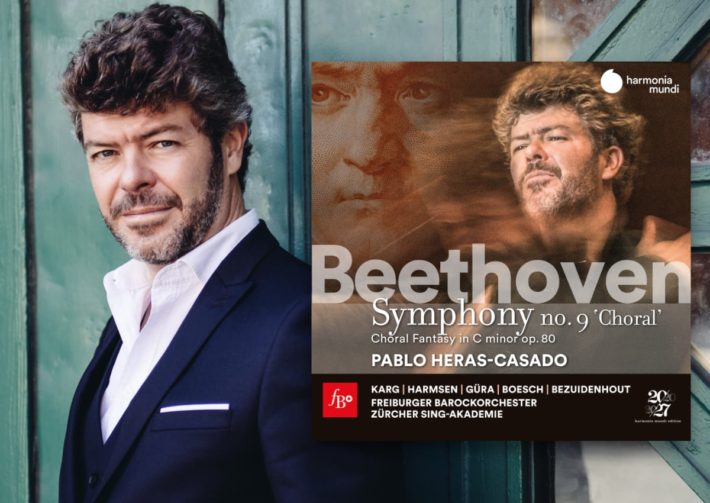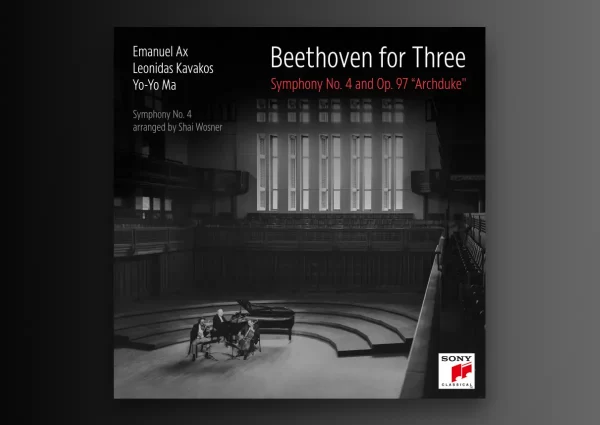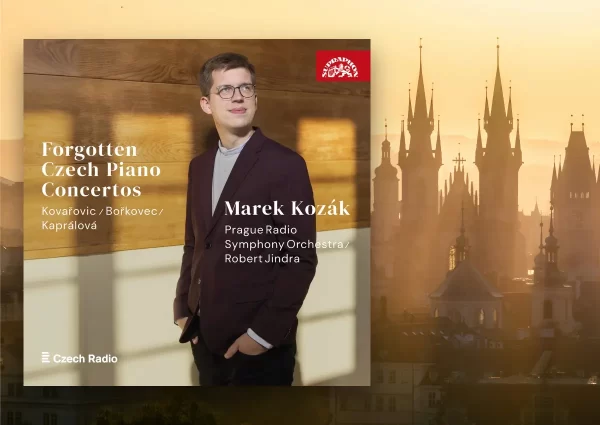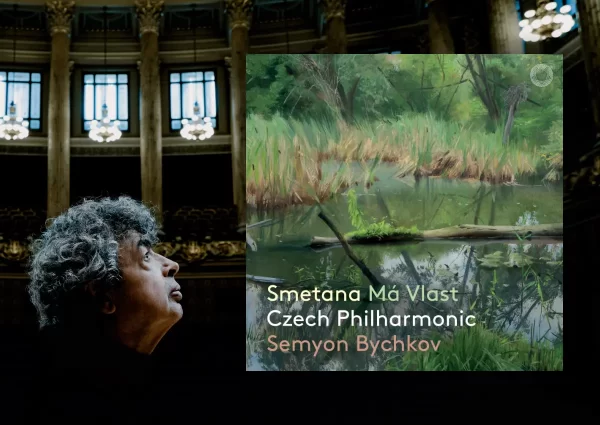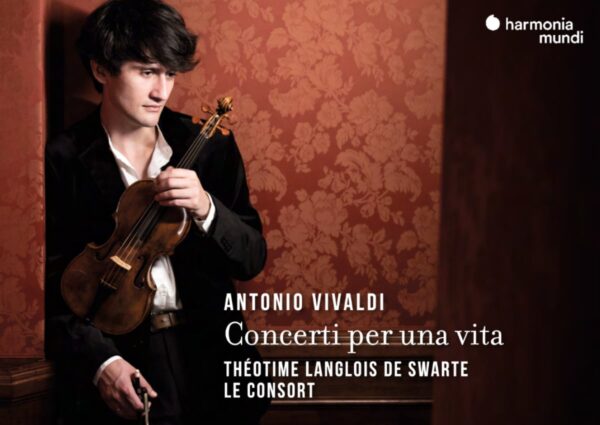Image: Jiyang Chen
Harmonia Mundi’s latest recording in its “20/27 Beethoven” series enters an incredibly crowded field. Harmonia Mundi has wisely included a substantial disc mate, Beethoven’s “Choral Fantasy,” as an added enticement. The performance is surely intended as an appendix to the cycle of Beethoven piano concertos the Freiburg orchestra and Kristian Bezuidenhout are currently recording, the first volume of which was met warmly on these pages.
Heras-Casado drives the first movement of the Ninth Symphony hard (13’35”); only Gardiner is faster (by 30 seconds). Yet the Freiburgers are unfazed by the tempo, playing with almost faultless technical accomplishment. Their heterogenous colors are exhilarating, and the horns are particularly impressive. Unfortunately, the phrasing is consistently clipped and unimaginative, and the tempo is not only fast, but rigid. Heras-Casado allows little rubato, perhaps believing that the movement is only about relentless agitation. Turn to Suzuki latest version and Rattle (in Vienna), two conductors who choose slower and more elastic tempos, and one immediately finds greater variety of mood and sentiment.
Tempo is also an issue in the second movement: Beethoven’s metronome marking is dotted half-note = 116. Heras-Casado begins at 109, but within 45 seconds he has slowed to around 102. Consequently, the music’s propulsive urgency is muted and somewhat sedate. While the slower tempo allows for some lovely legato song-like phrasing, the overall mood seems more in keeping with the sixth symphony than the ninth. The best part of the performance is how perfectly Heras-Casado manages the tempo relationship between the scherzo and trio sections – is it possible this is why he chooses a slower tempo for the scherzo portion?
The tempo of the third movement tempo has always been a sticking point in original instrument performances. “Traditional” performances from decades ago (Karajan/Böhm/Blomstedt) typically last 16-18 minutes. (Bernstein’s uniquely magnetic Berlin performance celebrating the fall of the Berlin Wall takes 20’14”.) Following Beethoven’s metronome marking, most “period instrument” performances (Gardiner/Krivine/Immerseel) are closer to 12 minutes, and such tempos can lead to performances that only skim the surface of Beethoven’s emotional world. Heras-Casado’s reading is 12’07,” and once again he allows himself almost no rubato. Interestingly, the liner notes argue that in the ninth there is a progression in the writing from an instrumental to vocal style; the third movement’s themes are unquestionably more “vocal” than the first two movements. The orchestral sound, using a warm, burnished tone, supports this idea. But the fast tempo is adhered to with a metronomic rigidity that works against any sense of “sung” phrasing, and the emotional depths of this music, so beautifully explored in Suzuki’s recent performance, are glossed over.
Related Classical Music Reviews
- Review: Beethoven – Piano Concerto No. 2 and 5 – Bezuidenhout, Heras-Casado
- Review: Beethoven – Symphony No. 9 – Masaaki Suzuki
- Review: Beethoven – Symphony No. 6 (“Pastoral”) – Akademie für Alte Musik Berlin
In the final movement, the orchestral basses show impressive unanimity in the opening recitative, and the orchestral variations on the “Ode to Joy” theme bring the requisite goosebumps. Bass Florian Boeschs opening pronouncement (5’35”) is powerful, but the highest notes sound somewhat strained. Once the choir enters the performance finds its stride, the Zürcher Sing-Akademie precise and fervent. The coda (20’19”) is overwhelmingly emotional, its final Prestissimo riveting.
The “Choral Fantasy” more than matches the excellence of the symphony’s final movement. Bezuidenhout plays the opening piano solo with grace and compelling improvisational freedom. The variations are full of character, the give and take between orchestral sections and the piano beautifully executed. Under Bezuidenhout’s influence, the Adagio (CD 2, track 3) has the rhapsodic freedom and emotional depth absent in the symphony’s slow movement. The entrance of the soloists and choir (track 4) brings a sense of celebratory joy, propelling the music forward into a Coda of almost wild abandon – a wholly convincing and inspiring performance.
Production values, as always with Harmonia Mundi, are first-class in every way, with full translations and informative liner notes. The engineered sound is disappointing: woodwinds are balanced in such a way that they sometimes dominate the aural picture, making one strain to hear the primary melodic material in the strings. The string sound is undernourished: comparing the personnel list with that of Suzuki’s recent recording, I expected the Freiburgers to have a smaller number of players, but they in fact are slightly larger!
In short, the recording has a technically impressive performance that only fitfully reveals the full emotional and spiritual nature of Beethoven’s masterpiece, while the Fantasy is wholly successful.

Beethoven – Symphony No. 9, “Choral Fantasy”
Christiane Karg soprano
Sophie Harmsen – Mezzo-Soprano
Werner Güra – Tenor
Florian Boesch – Bass
Kristian Bezuidenhout – Fortepiano
Zürcher Sing-Akademie
Freiburger Barockorchester
Pablo Heras-Casado – Conductor
Harmonia Mundi, CD HMM90243132
Recommended Comparisons
Read more classical music reviews or visit The Classic Review Amazon store
Follow Us and Comment:
Get our periodic classical music newsletter with our recent reviews, news and beginners guides.
We respect your privacy.

